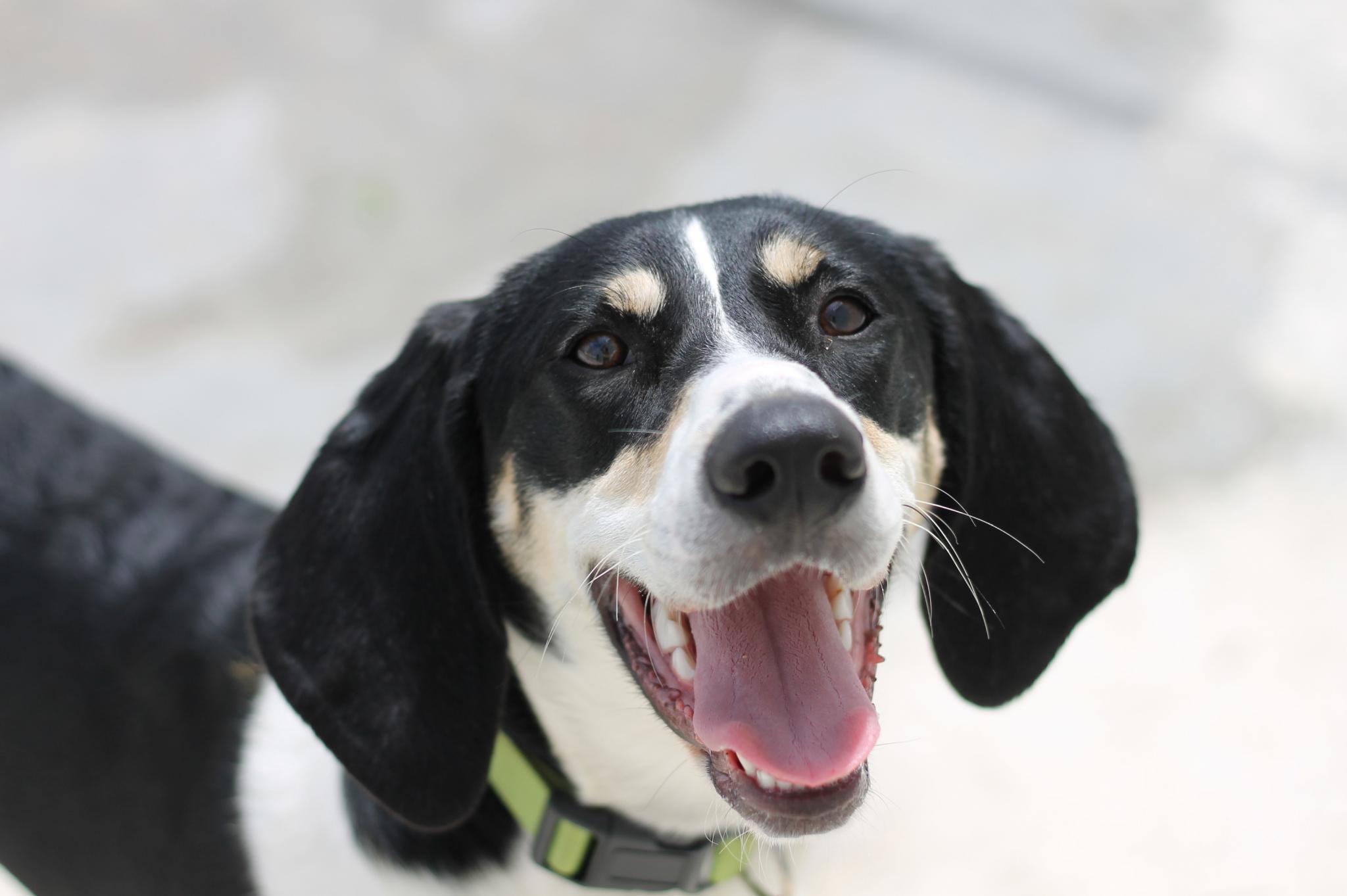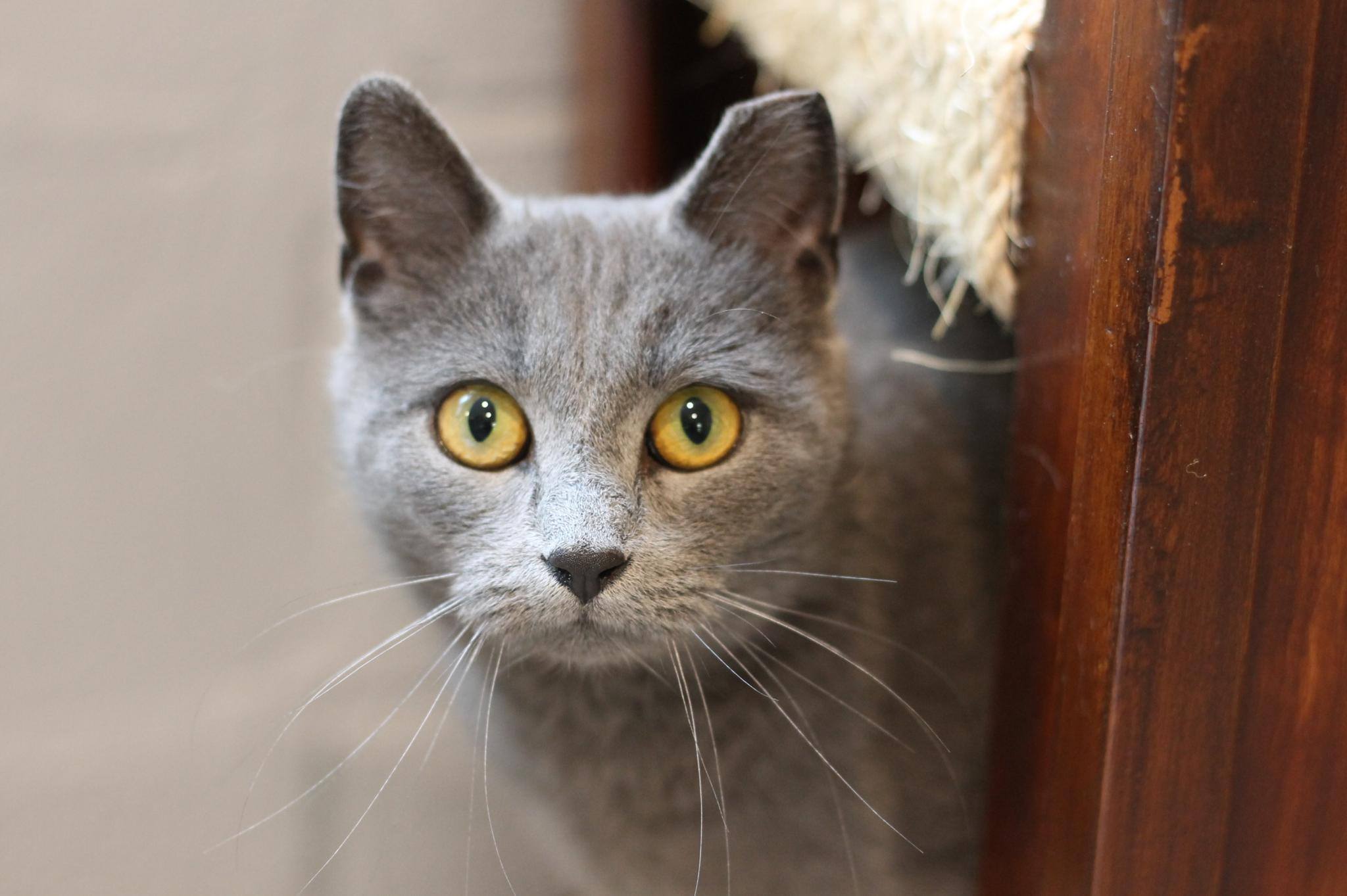
The Al-Van Humane Society provides a variety of information and services to our community.
Click on the topic you are interested in for more information.

We ask that you call our Intake Center at 269-639-2242 to report a stray animal you have found.
If you are instructed to bring the animal to our Intake Center, please leave the animal in your vehicle and check in with our Intake Coordinator at front desk. We will scan the animal for a microchip to see if it is an owned pet. If so, we will contact the owner to reclaim the pet. If not, we will collect information on the animal and where it was found, take photos and share via social media and Animal Control, in an effort to locate owners. Stray animals are held for the state-mandated days to provide owners time to locate lost pets. If an owner does not come forward, the animal will become available for adoption. If the Intake Center is full, you will instructed to contact Animal Control.
A stray cat who is healthy and friendly likely belongs to someone in your neighborhood. Cats have a far better chance of reuniting with their owner when they're left in the area in which they’re found. Less than five percent of stray cats that are brought into shelters are reclaimed by their owners. For this reason, we encourage you to leave healthy and friendly cats where you discovered them.
If you find a stray animal outside of open shelter hours, please contact Animal Control at 269-621-4624 or South Haven Police Department at 269-637-5151. We do not pick up stray animals. If you have a feral animal that needs help, please call your county's Animal Control. We do not accept feral animals.
If you have found an injured animal, please take them to a veterinary clinic, as we do not have medical staff onsite.
IT IS ILLEGAL AND CRUEL TO ABANDON AN ANIMAL. PLEASE DO NOT LEAVE ANIMALS OUTSIDE BUILDING. WE WILL PROSECUTE ANYONE CAUGHT DUMPING AN ANIMAL.
If you need to surrender an animal, please call our INTAKE CENTER Located at 73303 8th Ave to make an appointment: 269-639-2242.
All animals are welcome at our shelter regardless of age or health Behavior will be assessed prior to intake as our staff must be able to safely handle the animal . It is best to call ahead to ensure we have room to take in your pet. If we are at capacity we will provide you with a list of other shelter options or put your pet on our waiting list until space becomes available. There is no fee to surrender an animal, although donations are always appreciated.
We know that sometimes it is just not possible to keep a pet. Before making the decision to surrender a pet, please consider all of your options. We have resources and solutions that may be able to help you keep your pet in the home. Please contact us for more information.
Reach out to friends and relatives who might be able to give the pet a loving home. We advise against the use of social media such as Facebook or Craigslist to re-home pets, for safety reasons and to protect your pet.
If you must surrender a pet, please read the information below. Al-Van Humane Society works hard to place all adoptable animals into new loving homes. Information you provide, including a complete history, assists us in our ability to rehome your pet successfully.
What to Expect When Surrendering a Pet
Surrendering ownership of your pet: If you have decided to surrender your pet to the Al-Van Humane Society, there are a few necessary steps. Al-Van performs behavior assessments on all incoming animals, to ensure we can safely handle animals (required for daily animal care and staff safety). Should the assessment show any signs of aggression or other inability to handle the animal safely, the animal will not be accepted. If this happens, we will provide you with other options and resources to assist you.
If we are able to take the animal in, you will be asked to sign a release form giving Al-Van Humane Society legal ownership of the animal. Once you have signed the release statement, you may not reclaim your pet.
Pet's Medical Records: Please bring any medical records you have for your pet. If you do not have records, please provide the name of the veterinary hospital you use so we can request records to have on file.
Your Pet's Personality: Information you provide about your pet's health, behavior, habits, likes, and dislikes is helpful to rehoming your animal. Please be sure to share your pet’s history of any biting, refusal to use the litter box, serious or chronic medical conditions, or any other health or behavioral issues that will help us with their care and in finding the best match for their future home.
Reclaim Fee Breakdown (effective February 1, 2017)
- First incident/animal “impound” & boarding: $0 reclaim fee/donation suggested (So long as an animal is picked up within the stray hold period of either 4 days without collar, or 7 days with collar, the fees will be waived)
- Second incident/animal “impound” & boarding: $0 reclaim fee/donation suggested (So long as an animal is picked up within the stray hold period the fees will be waived)
- Third (or more) incident/animal “impound” & boarding: $10/day reclaim fee.
Reclaims Past Hold Periods:
If animal is held for mandated “stray hold” time period (4-7 days, dependent on collar or no collar at time of intake), and made available for adoption but still in the shelter’s care – owner will be charged reclaim fee for each additional day past mandated hold period, of $10/day plus any fees incurred for vaccines, spay/neuter surgeries, microchipping and any additional veterinary care that the animal required.
Each animal’s owner is required to provide proof of an up-to-date rabies vaccination or leave a $30 deposit, to then show proof within 30 days. If proof is provided within 30 days, deposit will be returned. If proof is not provided, AVHS will keep deposit of $30.
In the instance of non-payment for any of the above, Al-Van will provide an itemized bill, and will follow-up regarding payment options. A full breakdown of days at shelter and services provided will be available to owner at time of reclaim to show breakdown of fees.
Al-Van does not have a veterinarian on site, which means we are not able to provide spay/neuter surgeries to the public. At times when grant funds are secured, we are able to partner with local veterinarians to provide low cost spay/neuter clinics to the public. Please check our Facebook page for updates, or call 269-637-5062 for more information. Here are a few local options offering spay/neuter of community owned animals:
Kalamazoo Humane Society
The Kalamazoo Humane Society offers an innovative approach to controlling pet overpopulation by making spay/neuter services convenient and affordable to low-income families in and around Kalamazoo. For more information or to schedule an appointment, call KHS at 269-345-1181.
Allegan County Animal Shelter
*Allegan County Residents ONLY. Call for more information. 269-686-5112.
C-SNIP
C-SNIP is a non-profit, charitable organization, providing high quality, high volume, low cost spay/neuter surgery for dogs and cats whose caretakers cannot pay the fee at a full service veterinary clinic. For more information, visit C-SNIP.org or call 616-455-8220.
At this time, Al-Van does NOT have a “TNR” (Trap-Neuter-Release) Program, and we are unable to take in feral cats.
Dog Licensing
Van Buren County, Michigan dog licenses can be purchased at Al-Van Humane Society. Michigan Compiled Law 287.266 requires that all dogs over 4 months old must have BOTH a current rabies vaccination and a current dog license. Dog Licenses must be obtained by March 1st or as soon as a puppy has had his/her first rabies shot (around 6 months old). License fees for puppies under 7 months old are $30. After that date penalties apply. Van Buren County offers both a 1-year and a 3-year dog license. In order to purchase a license, your dog must have a current rabies vaccination. Current is defined as either: 30 days remaining in order to purchase a 1-year license, or (2) expiring after April 1st of the year the license expires for a 3-year license.
Fees:
- For licenses purchased
January 1st - March 1st: - 1 year spayed/neutered $10.00
- 3 year spayed/neutered $30.00
- 1 year 'unaltered' dog $20.00
- 3 year 'unaltered' dog $60.00
- March 2nd - November 30th:
(penalty period) - 1 year spayed/neutered $20.00
- 3 year spayed/neutered $40.00
- 1 year 'unaltered' dog $40.00
- 3 year 'unaltered' dog $80.00
Microchipping your pet
You can have your pet microchipped at Al-Van Humane Society for just $25.00. Watch for microchip specials throughout the year as we secure grant funds for special pricing.
Having your pet microchipped is one of the best ways to increase your pet's chances of getting home if he or she is lost or stolen. Unlike dog tags and collars, which can fall off or be removed, microchipping makes it 2x more likely your pet will be returned and is a permanent form of identifying your dog or cat.
How does it work?
A tiny capsule about the size of a grain of rice is injected under the loose skin in the back of your pet's neck, in between the shoulder blades. The procedure provides no more discomfort than a vaccination. Once implanted, register the chip - this is extremely important! Make sure you complete the form and mail it to the company, or register online. If your dog or cat becomes lost, a vet, shelter or sometimes law enforcement, can scan found pets for the digital number on the chip. Once scanned, the microchip company can be contacted to retrieve your contact information so you can be notified where to claim your pet.
At this time, Al-Van does NOT have a “TNR” (Trap-Neuter-Release) Program, and we are unable to take in feral cats (we cannot handle them and are thus unable to provide necessary care).
- What is a feral cat? A feral cat is any cat that is too poorly socialized to be handled and cannot be placed into a home. Most feral cats live in groups known as colonies near homes or businesses where people feed them.
- Where do feral cats come from? Feral cats are the offspring of lost or abandoned cats or other feral cats who are not spayed or neutered. Females can reproduce two to three times a year. Their kittens, if they survive, will become feral without early contact with people. Cats can become pregnant as early as four to five months of age and the number of cats in a colony rapidly increases unless the cats are spayed and neutered.
- What should I do about the feral cats in my neighborhood or where I work? The most effective way of dealing with feral cats is through a process called TNR or Trap - Neuter - Release. Cats in a colony are trapped in a humane trap, taken to a clinic where they are spayed or neutered and vaccinated, and then returned to their colony. This process improves the quality of life for feral cats, reduces their numbers, and reduces the nuisance behaviors associated with mating.
- What is a managed colony? Feral cat colonies require ongoing care. A feral colony caregiver monitors the colony for newcomers who are either born into the colony, "dumped," or wander in from nearby. The newcomers and any unsterilized cats are then trapped, neutered and returned. The caregiver also provides continued food, water and shelter to all colony cats.
- Why shouldn't I just trap and remove the cats from an area? Trapping and removing cats rarely works to reduce a feral cat population. Feral cats live in a certain location because they have found the food and shelter they need. If feral cats are removed from the area, cats from surrounding colonies move in to take advantage of the newly available resources and start the cycle of reproducing and nuisance behavior all over again. In addition, if any of the cats in a colony are left behind, they tend to have more kittens that survive to adulthood because of the reduced competition, and the population rapidly regains its former size.
- Can't I just move the cats to a different location? Relocating feral cats is a difficult and time-consuming process. Moving cats from one colony to another is very stressful to the cats and is rarely successful. The few sanctuaries in existence that house feral cats fill up rapidly and the quality of care is variable. Allowing the cats to remain in their "home" colony through a TNR program is the most humane and simple, and cares for the largest number of cats with the fewest resources.
- If you are able to contact a/your local vet, trap the cat, and bring it into the vet to be spayed/neutered, then re-releasing it to its colony, this is the best solution to the cat colonies and overpopulation.
- Will Al-Van Humane Society help me trap feral cats? No, we do not have the personnel to assist with trapping. Trapping is done by good-hearted volunteer caregivers, or organizations who have their own, established program. We can provide some information regarding this process, and contacts that may be able to help further.
- Where do I get humane traps? Traps can be purchased at feed stores like Tractor Supply and through various online resources, including Tomahawk Live Trap, Havahart Animal Traps, and Heart of the Earth Animal Equipment.
- What is ear-tipping? Ear-tipping is the removal of the distal one-quarter of a cat's left ear. Ear-tipping is the preferred method to identify spayed or neutered and vaccinated feral cats, because it is difficult to get close to feral cats and therefore the identification must be visible from a distance. Feral cats may interact with a variety of caregivers, veterinarians and animal control personnel during their lifetimes and so immediate visual identification is necessary to prevent an unnecessary second trapping and surgery.
